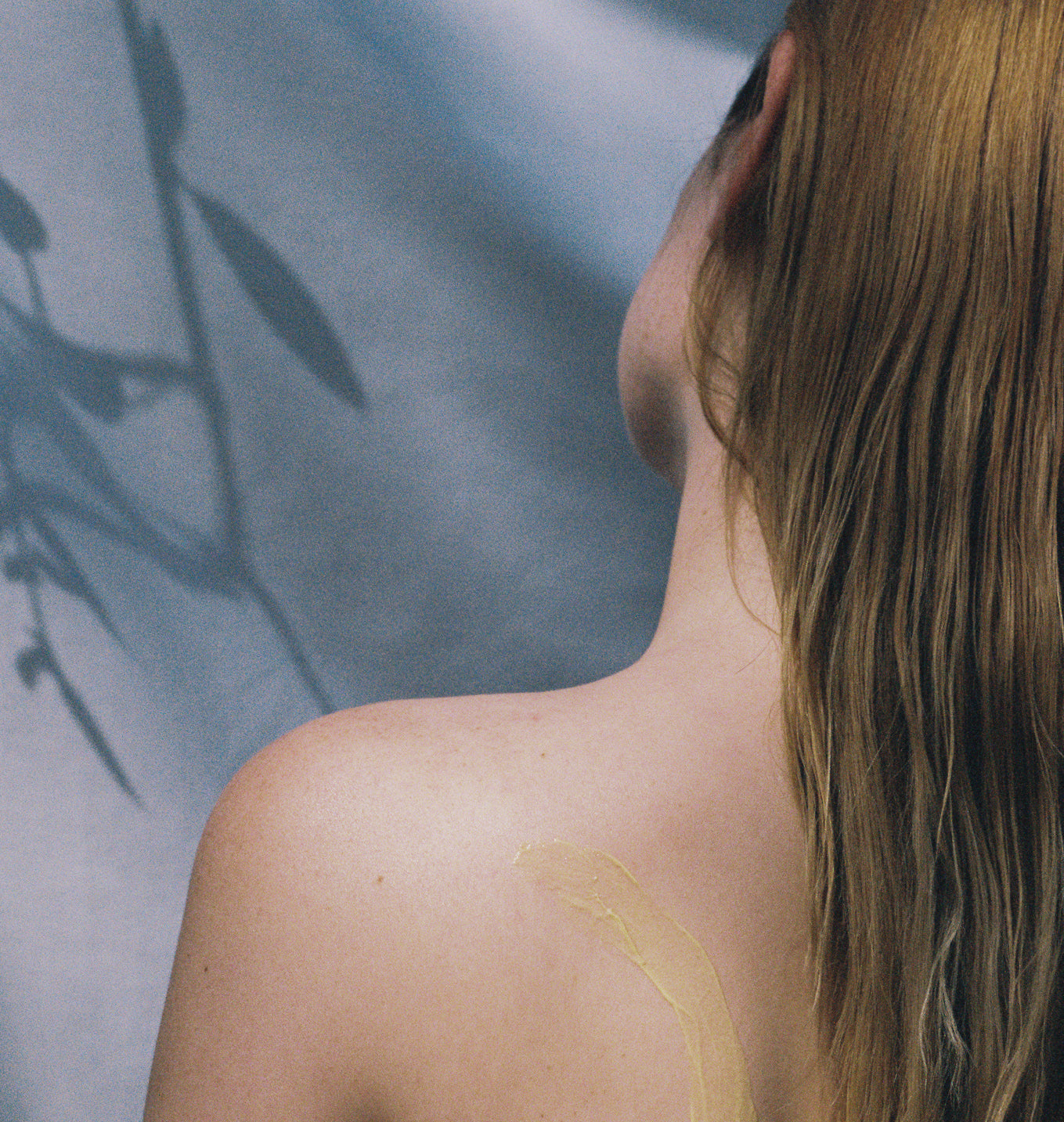Many women are affected by menstrual cramps, infertility or other so-called female problems. If you’re one of them and don't want to limit yourself to traditional medicine, the ancient knowledge of women's herbs and medicinal plants might be of interest to you. Though the scientific evidence on their mechanism of action is still being collected, many women swear by their holistic benefits.
When are women's herbs useful?
The concept of a women's herb already suggests that this type of medicinal plant is used to target problems that affect us women. These can include menstrual cramps, infertility, a low libido, pregnancy discomfort, impaired milk production, and symptoms of menopause. Women's herbs such as lady's mantle stand out for their effect on our hormones. As our hormone balance changes throughout our lives, different women's herbs are suitable for different phases in our life.
How do you take women's herbs?
The dosage depends entirely on the herb, but also on the nature of the complaint. Monk's pepper (Vitex agnus-castus) is available in tablet form, while tea is recommended for menstrual issues. Lady's mantle tea or raspberry leaf tea, for example, are very popular options. Some women's herbs are also applied externally to treat pains and ailments that women frequently suffer. For example, you can mix a tincture from yarrow and raspberry leaves or enjoy a bath with mugwort extract.
Herbs with benefits for female ailments
Ok, so it’s time to get down to business: Here are six of the most popular and powerful women's herbs that can bring you comfort – naturally – during your cycle.
Lady's mantle – the number one woman's herb
Its healing tradition goes back thousands of years and is an all-rounder in gynaecology. Containing plant hormones similar to the female sex hormone progesterone, [1] lady's mantle tea can influence our menstrual cycle and is thus helpful with various ailments we suffer.[2]
The tannins it contains have cleansing and anti-inflammatory effects. Lady’s mantle tea is said to have a positive impact on your period and to provide relief from menstrual issues such as extremely heavy bleeding or abdominal pain.
The hormone-regulating effect may prevent pre-term births and benefit women's fertility.[2][3] A recent study also shows that lady's mantle can help with healing wounds.[4]
‘Where the yarrow grows, there is one who knows’
This old saying points to the long tradition in using yarrow as a curative plant, particularly in women’s health. The fact that yarrow tea is recommended in particular for menstrual cramps has to do with its antispasmodic and analgesic properties. If you suffer from primary period pain issues, you might find yarrow particularl helpful.[5]
Monk’s pepper – Vitex agnus-castus for fertility issues
The ancient Greeks used monk's pepper – or Vitex agnus-castus as it’s officially called – to increase fertility. The combination of its essential oils and secondary plant substances can help with various female ailments. Problems such as breast sensitivity, PMS, menstrual irregularity and cramps can be influenced because monk's pepper reduces the levels of prolactin – a stress-induced hormone – from being released.[6] High levels of prolactin in the blood can lead to issues such as irregular periods, endometriosis or infertility.[7] Monk's pepper is therefore said to work wonders when having problems getting pregnant.
Its anti-inflammatory, anti-irritant as well as antibiotic properties make monk's pepper a feel-good women's herb for any day.[7] Monk's pepper can be taken as an extract, but it can also be absorbed through the skin. Our period creme The Hug contains Vitex agnus-castus, which helps when creating your ritual that both warms and revives you.
Mugwort tea for menstrual cramps
Mugwort is the women's herb of choice when it comes to menstrual cramps. Especially for strong period pains and PMS, but can also provide relief for irregular or missing periods. In addition to assisting with relaxation, it is also said to have comforting warming properties.[8][9] For those who suffer from menstrual cramps, tea made with mugwort is highly recommended.
But there’s much more to this otherwise inconspicuous plant. Its active substances are used successfully in drugs to fight malaria and in post-treatments for blood cancer. Studies are also currently underway to investigate the efficacy of the plant extract against Sars-CoV-2.[10]
Raspberry leaves in preparing for birth
If you've already had a pregnancy or are in the middle of one right now, you may already be familiar with this herb. Raspberry leaves are often recommended as a tea to drink towards the end of pregnancy, as it’s said to foster blood circulation and thus stimulate contractions. Studies also suggest that raspberry leaves may reduce the risk of having procedures done such as caesarean section.[11]
Due to their hormone-regulating and antioxidant properties, lady's mantle tea and raspberry leaf tea are often recommended in combination with each other.[12][13] With lady's mantle tea in the first half of the cycle and raspberry leaf tea in the second half, you can assist your cycle along in a wonderfully natural way.
St. John's wort to improve your mood
This women's herb is said to help lighten your mood. In fact, studies found that the use of St. John's wort can help alleviate mild to moderate depression.[14] If you suffer from mood swings, you can make St. John's wort part of your pampering program for conditions like PMS or menopausal complaints. St. John's wort is usually recommended as a supplement, but it can also help you achieve inner peace and balance as an ingredient in our period creme The Hug.
Whether your menstrual ally of choice is a tea that combines lady's mantle with raspberry leaf or a tea made of mugwort and yarrow, the decision is entirely up to you. But one thing's for sure: There’s a ton of healing potential with women's herbs – and without synthetics and side-effects. So go ahead, let nature do the pampering!
Sources:
[1] Wechseljahresbeschwerden, nicht nur ein Mangel an Hormonen
https://cme.mgo-fachverlage.de/uploads/exam/exam_132.pdf
[2] Alchemilla vulgaris agg. (Lady's mantle) from central Balkan: antioxidant, anticancer and enzyme inhibition properties
https://pubs.rsc.org/en/content/articlelanding/2019/ra/c9ra08231j
[3] The Clinician's Handbook of Natural Medicine: Infertility, female
https://www.sciencedirect.com/science/article/pii/B9780702055140000518
[4] Towards a modern approach to traditional use: in vitro and in vivo evaluation of Alchemilla vulgaris L. gel wound healing potential
https://pubmed.ncbi.nlm.nih.gov/30904703/
[5] Effect of Achillea Millefolium on Relief of Primary Dysmenorrhea: A Double-Blind Randomized Clinical Trial
https://pubmed.ncbi.nlm.nih.gov/26238568/
[6] Chaste tree (Vitex agnus-castus)--pharmacology and clinical indications
https://pubmed.ncbi.nlm.nih.gov/12809367/
[7] Mönchspfeffer – Die Heilpflanze bei Frauenbeschwerden
https://www.zentrum-der-gesundheit.de/ernaehrung/nahrungsergaenzung/heilpflanzen/moenchspfeffer
[8] The Genus Artemisia: A Comprehensive Review
https://www.tandfonline.com/doi/full/10.3109/13880209.2010.497815
[9] Beifuss – Frauenkraut und Verdauungselixier
https://www.zentrum-der-gesundheit.de/ernaehrung/nahrungsergaenzung/heilpflanzen/beifuss-ia
[10] Beifuß enthält Extrem-Wirkstoff Artemisinin
https://www.innovation-strukturwandel.de/de/beifuss-enthaelt-extrem-wirkstoff-artemisinin-2911.html
[11] Raspberry leaf and its effect on labour: safety and efficacy
https://pubmed.ncbi.nlm.nih.gov/10754818/
[12] Berry Leaves: An Alternative Source of Bioactive Natural Products of Nutritional and Medicinal Value
https://www.ncbi.nlm.nih.gov/pmc/articles/PMC4931538/
[13] Dietary berries and ellagic acid diminish estrogen-mediated mammary tumorigenesis in ACI rats
https://pubmed.ncbi.nlm.nih.gov/18444155/
[14] A systematic review of St. John's wort for major depressive disorder
https://pubmed.ncbi.nlm.nih.gov/27589952/

